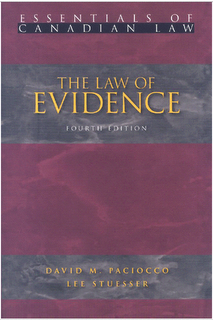Poker & Law School
Before I came to law school, I couldn't tell you the difference between a flush and a straight. Now, as a law school student, I would almost feel guilty graduating without a limited proficiency playing poker. For some reason, poker and law school go very well together - go together like a horse and carriage.
At Queen's, there are umpteen poker nights going on at any given time. One group has a mailing list with about 25 students - almost an equal mix of men and women. I was reading a headline recently of a Florida law student with 2006 poker winnings of over $650,000US. Vanessa Rousso is in a long line of law-school-students-turned-professional-poker-players. It has become so big that Harvard Law School actually had a forum on the subject.
Poker players and lawyers gathered around a table last night—sans cards—to discuss everything from legal issues to card strategy in a forum on poker held at Harvard Law School (HLS).Indeed.
Adam M. Burrows, a second-year HLS student who organized the event, said the forum confirmed his hypothesis that there is a connection between the law profession and poker.
“I think it’s interesting how a lot of the players you hear about recently are lawyers,” he said. “Somehow I think there’s a tie between poker and legal professionals.”







